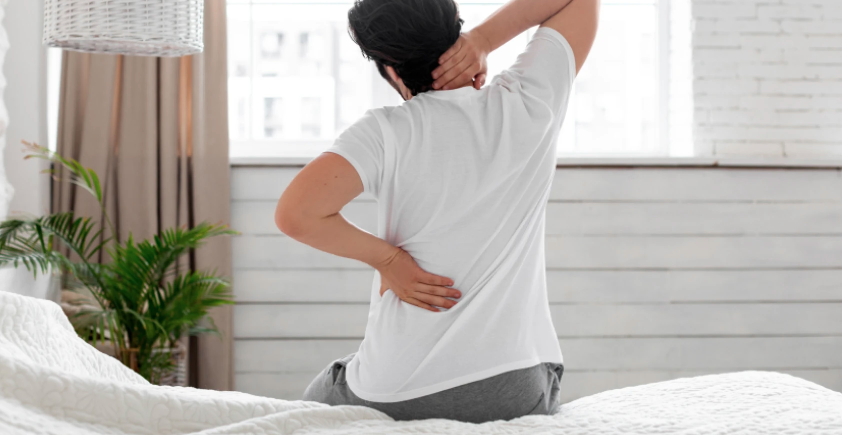
Doctor-Approved Arthritis Pain Relief Methods
Here’s a breakdown of the most commonly recommended treatments by healthcare professionals:
| Treatment Type | Examples | How It Works | Doctor Recommendation Level | Notes |
|---|---|---|---|---|
| NSAIDs | Ibuprofen, Naproxen | Reduces inflammation and pain | ⭐⭐⭐⭐☆ | Effective short-term relief |
| Topical Creams | Voltaren, Capsaicin, CBD creams | Localized pain relief on joints | ⭐⭐⭐⭐☆ | Fewer systemic side effects |
| Physical Therapy | Guided exercises, joint mobility | Strengthens muscles around joints | ⭐⭐⭐⭐⭐ | Long-term improvement with consistency |
| Corticosteroid Injections | Joint-specific injections | Rapid inflammation reduction | ⭐⭐⭐⭐☆ | Typically used for flare-ups |
| Supplements | Glucosamine, Turmeric | Supports joint health & reduces pain | ⭐⭐⭐☆☆ | Results vary; best for mild symptoms |
| Assistive Devices | Braces, canes, orthopedic shoes | Reduces pressure on joints | ⭐⭐⭐⭐☆ | Improves mobility and daily comfort |
| Biologic Medications | Humira, Enbrel | Targets immune response | ⭐⭐⭐⭐⭐ | For rheumatoid or autoimmune arthritis |
| Lifestyle Changes | Weight loss, diet, quitting smoking | Lowers inflammation naturally | ⭐⭐⭐⭐⭐ | Highly recommended for long-term benefits |
💊 NSAIDs: Quick Relief for Inflammation
Nonsteroidal anti-inflammatory drugs (NSAIDs) like ibuprofen and naproxen are among the first lines of defense for arthritis pain. They work by blocking enzymes that cause inflammation, giving quick relief—especially for osteoarthritis. Doctors recommend using them in moderation to avoid gastrointestinal issues or heart risks.
🧴 Topical Pain Relievers for Targeted Action
For those who can’t tolerate oral medications, topical creams such as Voltaren (diclofenac) or natural products like capsaicin and CBD creams provide localized relief. These are especially helpful for knees, hands, and wrists, and have minimal side effects since they’re not absorbed systemically.
🏋️♂️ Physical Therapy: Building Long-Term Strength
Doctors often refer arthritis patients to licensed physical therapists, who guide them through mobility and strength-building routines. These exercises enhance joint support, reduce stiffness, and improve flexibility over time. It’s one of the most effective non-medication strategies for managing arthritis pain naturally.
💉 Corticosteroid Injections: Instant But Temporary
When pain becomes severe or mobility is drastically reduced, corticosteroid injections can offer fast relief. Administered directly into the joint, they reduce swelling and restore function. Doctors typically limit these to a few times per year to avoid joint damage from overuse.
🌿 Natural Supplements: Gentle Support
Supplements like glucosamine, chondroitin, and turmeric curcumin are widely used among arthritis patients. While clinical results vary, many doctors say they may ease mild pain or enhance cartilage support. Always consult a physician before beginning any supplement routine.
🦶 Assistive Devices: Relieving Joint Stress
Braces, canes, and orthopedic insoles can make a big difference in daily life. They help redistribute pressure and reduce strain on affected joints. Doctors often recommend these for seniors or anyone with mobility issues to prevent falls and promote independence 🚶♀️.
🧬 Biologic Medications for Autoimmune Arthritis
For conditions like rheumatoid arthritis, doctors often prescribe biologic drugs that target specific parts of the immune system. These medications can dramatically slow disease progression, though they require close monitoring and are typically used under specialist care.
🥗 Lifestyle Changes Doctors Strongly Recommend
One of the most underappreciated treatments is lifestyle modification. Doctors emphasize the importance of losing weight, maintaining an anti-inflammatory diet, staying physically active, and quitting smoking. These changes can significantly reduce arthritis symptoms and improve quality of life naturally 🌞.
✅ Final Thoughts
While there’s no universal cure for arthritis, there are effective, science-backed options that can dramatically improve symptoms and daily functioning. By combining medication, physical therapy, lifestyle adjustments, and professional guidance, you can take control of your arthritis pain. Always consult your doctor to personalize your treatment plan 🙌.









